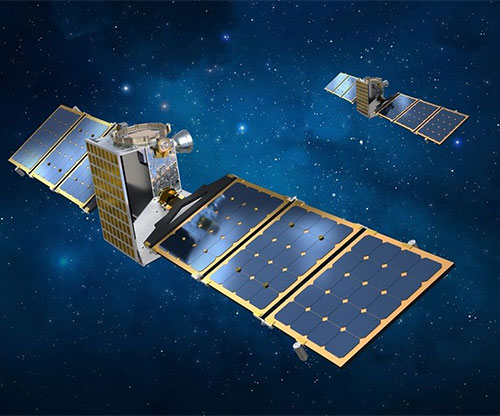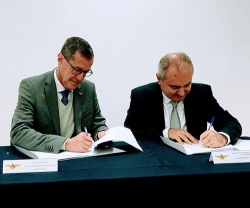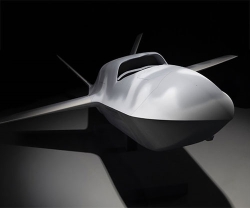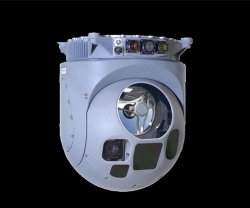Lockheed Martin has opened a facility that streamlines small satellite (smallsat) processing to enable high-rate delivery. The multi-million dollar facility will house the company’s Space Development Agency (SDA) Tranche 1 Transport Layer satellites, among other smallsat programs and technology demonstrators.
The 20,000-square-foot low bay clean room, located on the company’s Waterton campus, will feature six scalable parallel assembly lines and is configurable to host different classifications of missions concurrently. Built with flow and throughput in mind, the center is tailored to accommodate all stages of smallsat development, including spacecraft-level functional and performance testing.
“Lockheed Martin is committed to providing advanced satellites of different sizes and capabilities to meet our customers’ needs and support their strategy to achieve greater orbital diversity,” said Johnathon Caldwell, Vice President and General Manager for Military Space at Lockheed Martin.
“This new facility is one of many investments our company has made to lower costs and to deliver scalable solutions with increased speed and agility, to provide 21st Century Security solutions for our customers,” he added.
The facility hosts dedicated testing capabilities, including thermal cycle and electromagnetic chambers, scaled to efficiently build and test satellites ranging in size from CubeSats to smallsats. The tailored fit reduces waste and optimizes energy and space, supporting the delivery of 180 satellites or more per year.
Lockheed Martin is currently developing more than 50 satellites for the SDA’s Transport Layer, which will provide military users with low-latency communication links through a resilient network of integrated capabilities from low-Earth orbit. Lockheed Martin’s 10 Tranche 0 Transport Layer satellites are expected to launch this year, while its 42 Tranche 1 satellites will soon move into processing in the new factory to support a 2024 launch.
Lockheed Martin continues to invest in strengthening advanced capabilities, infrastructure and industry partnerships for our customers and will continue to transform our business operations to enhance quality, efficiency, and affordability.
Lockheed Martin plans to continue leveraging its longstanding strategic partnerships, including its diverse supplier base, and will utilize its new facility for assembly, integration and testing to optimize these relationships.
Headquartered in Bethesda, Maryland, Lockheed Martin Corporation is a global security and aerospace company that employs approximately 116,000 people worldwide and is principally engaged in the research, design, development, manufacture, integration and sustainment of advanced technology systems, products and services.



















